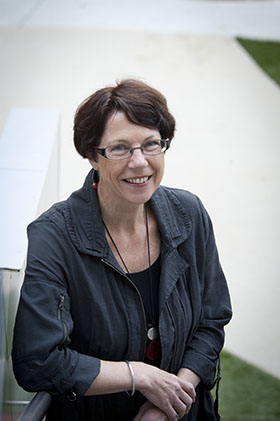Living to 90 and beyond: what do we know about the health of very elderly Australians?
Media releaseWith future Australians expected to live well into their 90s, Deakin University researchers have questioned if we really have our finger on the pulse of the health needs of this growing generation of very elderly people.
Based on insights from her own research, Professor Julie Pasco, the head of Deakin Medical School’s Epi-Centre for Healthy Ageing, believes we do not yet know enough about the health of nonagenarians to adequately support current and future generations of 90 year olds.
“Despite the increase in longevity in our ageing population, the inclusion of very elderly participants in health studies is limited,” said Professor Pasco, who is also lead investigator of the Geelong Osteoporosis Study.
“Most of the health advice given to those in their 90s is based on what we know about 70 and 80 year olds. What our research tells us is that we can’t assume that 90 year olds have the same lifestyle habits and health needs as those 10—20 years younger.
“It is therefore important and timely to involve elderly participants in health studies. They are the ones with the power to inform decision making and help shape health recommendations for our ever expanding ageing population.”
Research on the health and wellbeing of nonagenarian women published by Professor Pasco and her team this year pointed to a gap in what we know about the health of these very elderly Australians.
The researchers analysed the data collected during a 10 year follow up of participants in the Geelong Osteoporosis Study – which has been monitoring the health of people in the Geelong region for more than 20 years.
Among the 14 female nonagenarians in the study, most were of a normal weight, nearly a quarter (3) were underweight, around a third (4) were overweight and one was obese, a third (5) had high blood pressure and over two-thirds (9) had osteoporosis. None of the women smoked or had fallen in the previous year.
Professor Pasco said that, on a number of measures, the health of the women in the study differed to what might be expected based on advice for the 70/80+ age group.
“The mean BMI for the nonagenarians was lower than previously reported for women aged 80 years and over (90 year olds 23.5; 80+ 26.4) and the mean percentage of body fat was also less (90 year olds 29.8 %, 80+ 38.4 %). It was also surprising to see that none of the nonagenarians had fallen in the previous year as it has been reported that round one-third of community-dwelling people over 75 years experiences a fall each year,” she said.
“Nonagenarians are also less active and their daily activities differ from 70-80 year olds therefore the risk factors for injury or dying among the younger elderly are not necessarily going to be a problem for the very elderly.
“We are delighted with the sustained contribution of the 90 year old women whose support has allowed us to monitor the health and wellbeing of Geelong residents as they enter different phases of their health journey. Let’s hope that there are further studies involving the very elderly so that we can be prepared to support the growing generation of 90 year olds.”
The research, ‘Characteristics of Female Nonagenarian Participants in an Observational Health Study’, was published in the Journal of Gerontology & Geriatrics Research.
About the Geelong Osteoporosis Study
The Geelong Osteoporosis Study has been running in the Geelong region for over 20 years. It is one of the prominent studies being conducted by Deakin University’s IMPACT Strategic Research Centre. Study participants visit the University Hospital Geelong (Barwon Health) to have a health check every few years, providing ongoing monitoring of the health and wellbeing of people living in our region. These data can be extrapolated to describe the broader social and health needs that are relevant to the Geelong community and beyond. The unique data set is also being used to identify risk factors for chronic disease. The next phase of the male arm of the Geelong Osteoporosis Study will commence soon and will involve participation of some very elderly men from the community.
Share this story
 Professor Julie Pasco
Professor Julie Pasco
